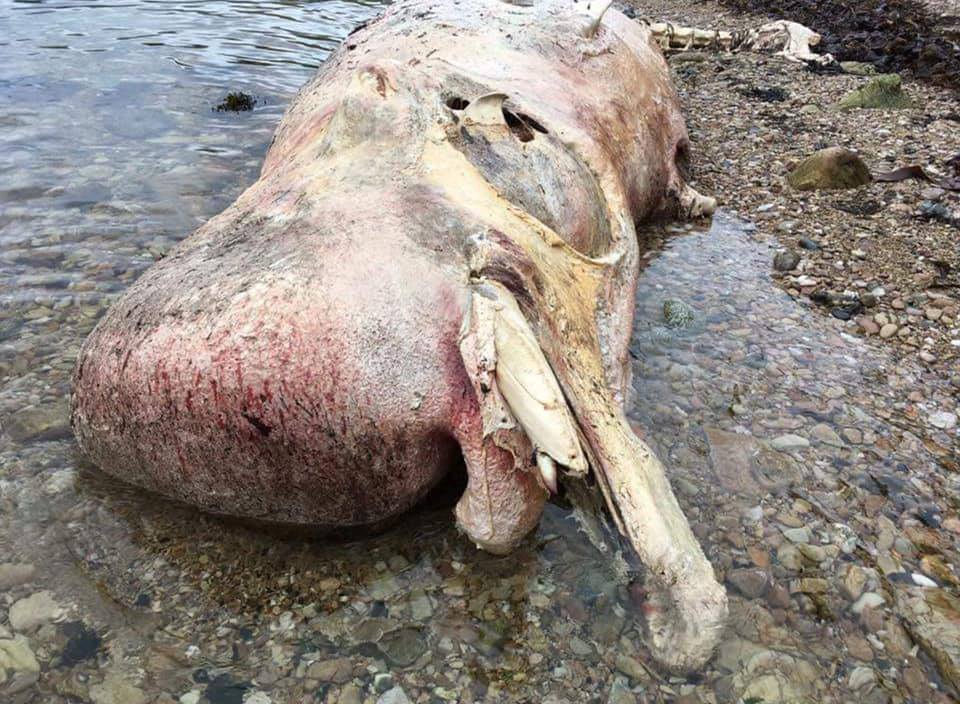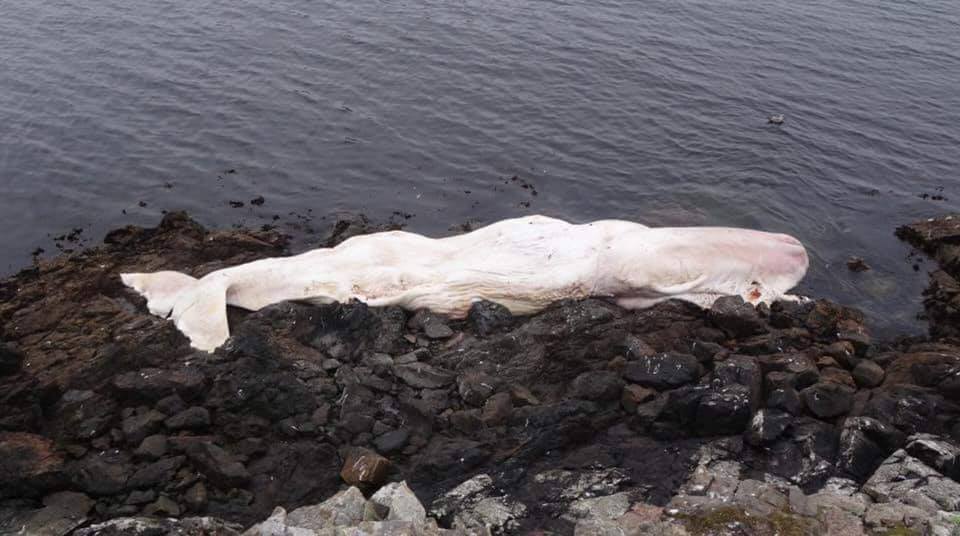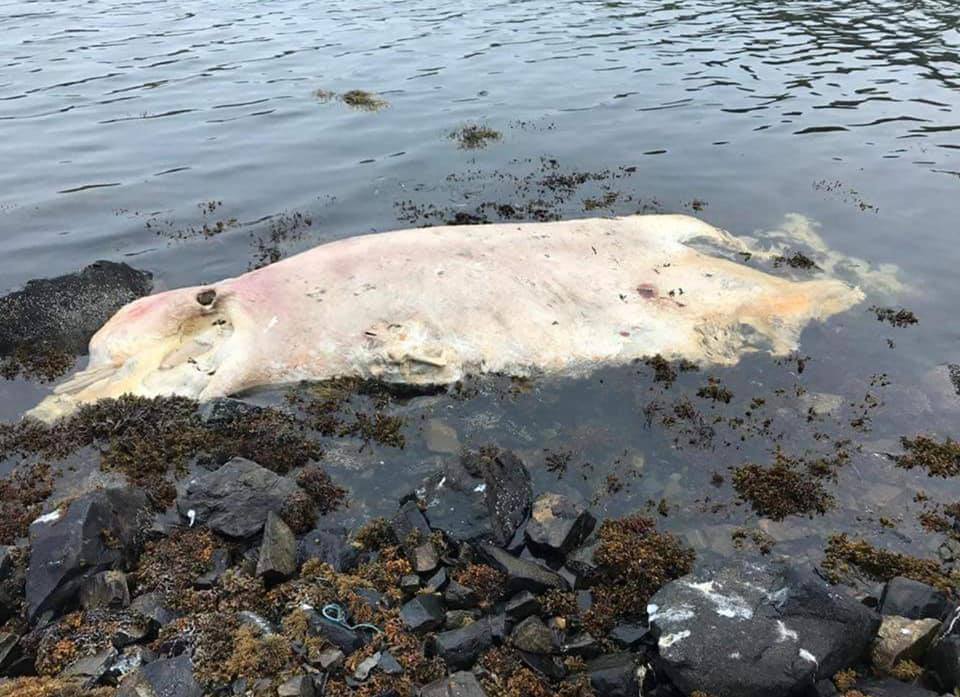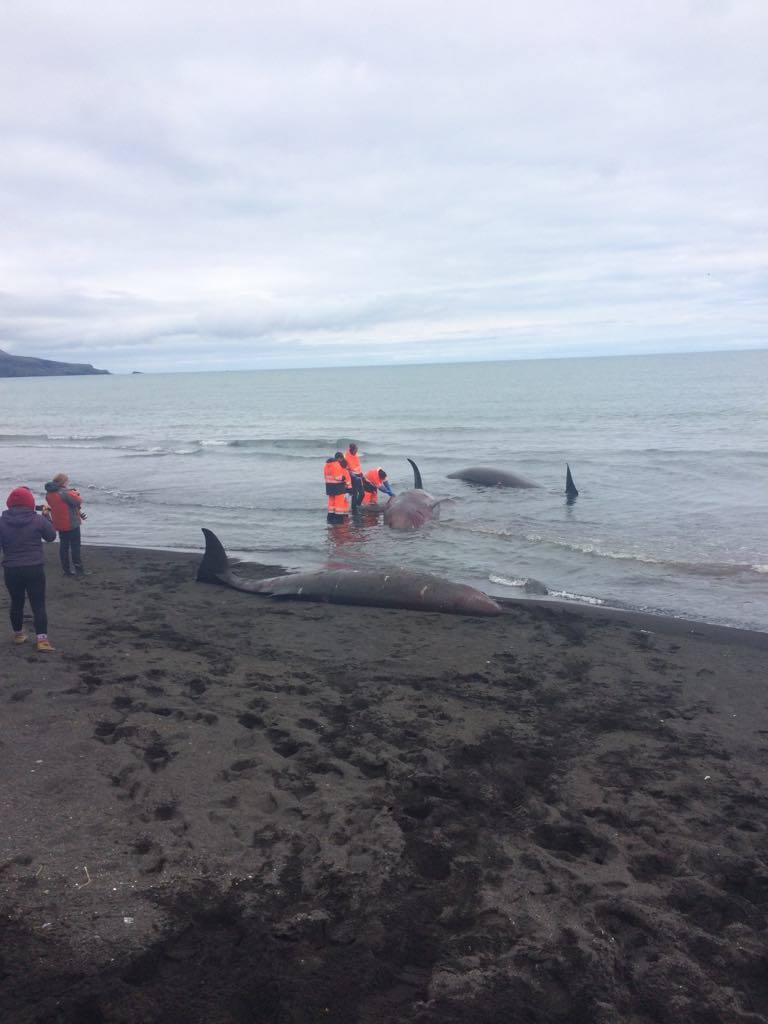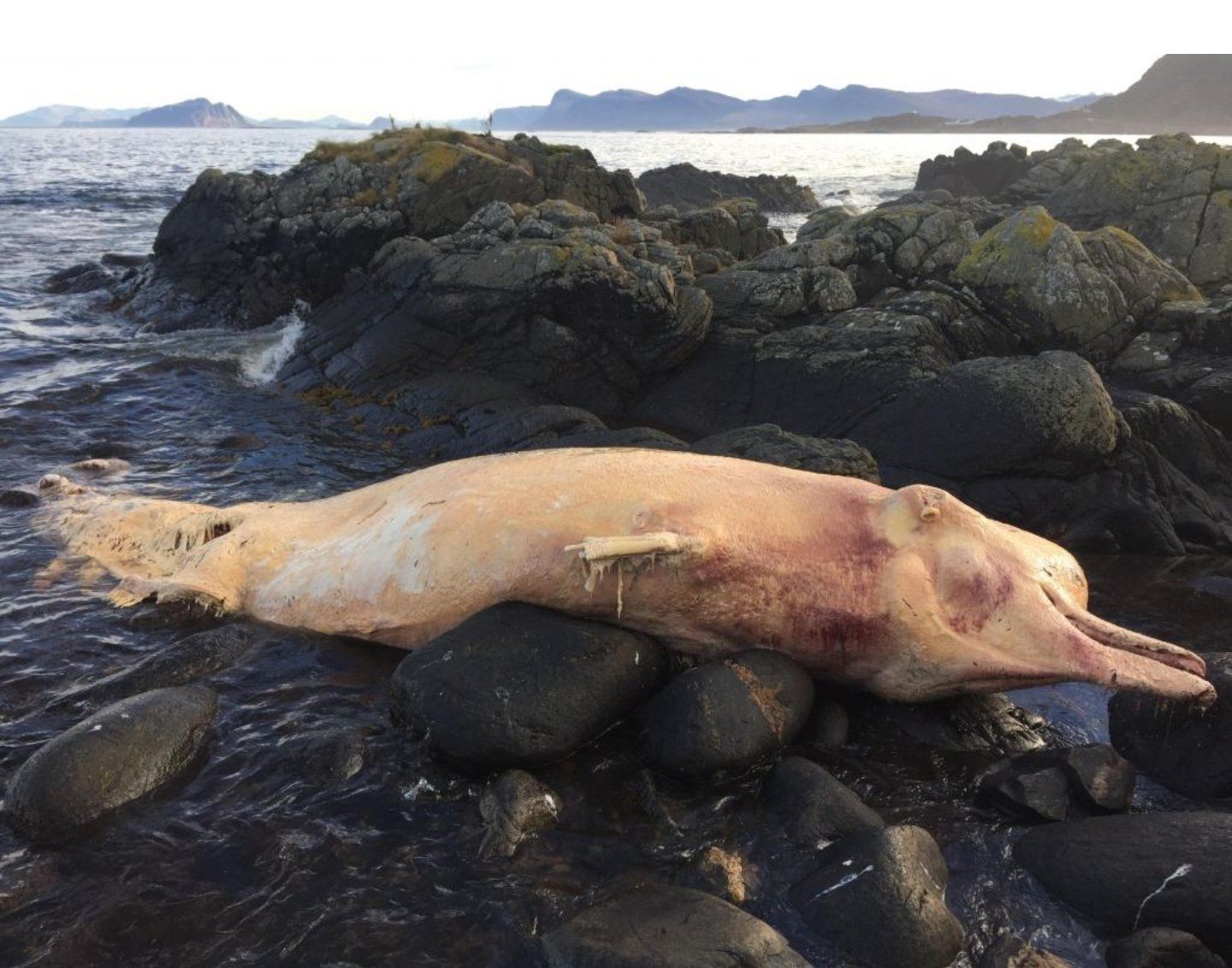More strandings of deep diving cetaceans in Scotland, Iceland and Norway.
The latest update on strandings of deep diving cetaceans has come from Scotland, Norway and Iceland, with strandings being reported since early September right up until yesterday. Scientists believe these unusual mortality events (UME)s could be linked to the strandings of beaked whales which occured on Irish, U.K and Icelandic shores back in early August which may be a result of military sonar.
In Scotland, there has been 48 confirmed Cuvier's beaked whales ( Ziphius cavirostris
) stranded. In addition to these at the end of September/ beginning of October
there were 6 northern bottlenose whales( Hyperoodon ampullatus
)reported stranded in Scotland.
In the last week there was 3 dead northern bottlenose whales and 1 dead sperm whale ( Physeter macrocephalus )stranded on the Shetlands.
Although these animals tend to be very decomposed scientists can still get useful information from them. For example, strandings can represent a percentage of at sea mortality and also give indications of species distributions. In addition, scientists can examine the carcasses to assess health prior to mortality and take sample for genetic and stable isotope analysis, providing insight into species diet and population dynamics. The cause of death may be determined with necropsy, as it allows for the close examination of internal organs such as lungs and the inner ear, thus allowing researchers to assess whether the animal died by drowning in fishing gear or by damage to it's hearing which could cause either temporary-threshold shift orpermanent threshold shift.
Up to 9 northern bottlenose whales have stranded in southern and northern Iceland over the last two months. Six to seven whales were reported stranded in northern Iceland and two more in southern Iceland. The whales arrived in a bay in northern Iceland in early June and began stranding in August, around the same time as strandings of beaked whales occured in Ireland.
The first four whales live stranded but were deceased before found, the next two were decomposed when discovered. One whale stranded in early September and then another stranded again yesterday. These were in the same area as the last strandings earlier in the summer, according to colleague to Charla Basran, PhD researcher at Hásavik Research Centre, Rannsóknaseteur Háskóla Islands a Húsavík.
Northern bottlenose whale ( Hyperoodon ampullatus ) found dead floating in Iceland 11-10-2018. Video by Serrir Karlsson.
The Marine Research Institute located in the south of Iceland performs necropsies when possible and a necropsy has been undertaken to investigate the death of one of the two whales that stranded in south Iceland. Whales stranded in the north were not necropsied but samples and measurements were taken.
Another northern bottlenose whale was found on Wednesday the 10-10-2018 atGoksøyrvika on Runde, Norway, according to Jenny van Twillert. Researchers at the Environment Centre are in contact with the University of Bergen for a possible necropsy.
The northern bottlenose whale is a beaked whale that ranges over high latitudes of the north Atlantic Ocean(Ridgeway & Harrison 1989).The current population of northern bottlenose whales is thought to be much-reduced due to intense historical whaling (Whitehead & Hooker, 2012). These whales were noted for their curiosity towards unusual sounds and their allegiance towards wounded companions, which, unusually among whaling vessels, led to harpoon guns mounted both fore and aft, and allowed whalers to capture entire groups (Ohiln, 1983). Underwater noise, which is expected to increase in the species' habitat as human activities expand into deep Arctic waters (Post et al
., 2013), is a potential threat to the recovery of the species.
Despite northern bottlenose whales having been the most heavily hunted beaked whale, there is little information about this species in its remote habitat of the North Atlantic Ocean. The most recent abundance estimates of Cuvier's beaked whales from visual surveys in the north-east Atlantic have given estimates of 2,286 (95% CI 942,-5,552) which is likely to be an underestimation, given beaked whales are notoriously difficult to detect, spending more than 95% of their time below the surface (Rogan et al.
, 2017). Underwater anthropogenic noise and disruption of their natural habitat may be major threats to the species, given the sensitivity of other beaked whales to such noise disturbance. Recent studies using biologgers have indicated high sensitivity of this species to acoustic disturbance, with consequent risk from marine industrialization and naval activity(Miller et al
., 2015).The British government have launched an official investigation into the possible causes of this UME, with the cooperation of the Irish government to help avoid such mass mortalities of sensitive deep diving cetaceans in the future.
Please let us know about any other dead whales or marine megafauna you may come across including floating animals too. Report them to the ORCireland's Strandings Team at www.orcireland.ie. or download or App "ORCireland Observers" and become a member for a year for free when you sign up in the members tab. We will pass info to relevant authorities be it a live dolphin, seal or shark and try our best to help. You can also join us as a volunteer or make a donation towards our work via our website.
© Ocean Research & Conservation Ireland (ORCireland) and www.orcireland.ie , est. 2017. Unauthorized use and/or duplication of this material without express and written permission from this site’s author and/or owner is strictly prohibited. Excerpts and links may be used, provided that full and clear credit is given to Ocean Research & Conservation Ireland and www.orcireland.ie with appropriate and specific direction to the original content.
References:
- Miller PJO et al. 2015 First
indications that northern bottlenose whales
are sensitive to behavioural disturbance from
anthropogenic noise.R. Soc. open sci
- Ohlin, A . 1893 Some remarks on the bottlenose whale (Hyperoodon).Lunds Univ. Arsskr. 29, 1–13 +11 plate .
- Post E, et al . 2013 Ecological consequences of sea-ice decline. Science 341, 519–524.
- Rogan, Emer & Cañadas, Ana & Macleod, Kelly & Santos, M & Mikkelsen, Bjarni & Uriarte, Ainhize & Canneyt, Olivier & Vazquez, José Antonio & S. Hammond, Philip. (2017). Distribution, abundance and habitat use of deep diving cetaceans in the North-East Atlantic. Deep Sea Research Part II: Topical Studies in Oceanography.
- Ridgway SH,Harrison R . 1989 Handbook of marine mammals, vol. 4: river dolphins and the larger toothed whales. London, UK: Academic Press.
- Whitehead H,Hooker SK. 2012 Uncertain status of the northern bottlenose whale Hyperoodon ampullatus : population fragmentation, legacy of whaling and current threats. Endang. Species Res. 19, 47–61.
SHARE THIS ARTICLE






